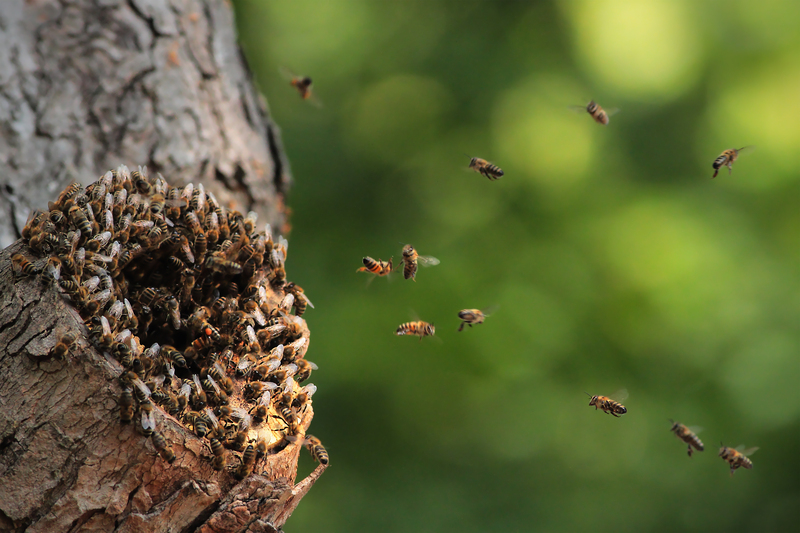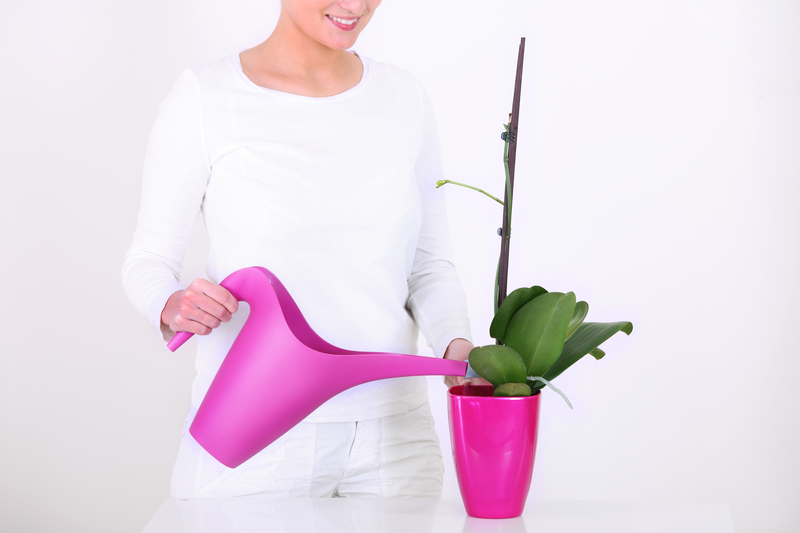9 Fundamental Gardening Tips for Newbies
Posted on 02/09/2025
9 Fundamental Gardening Tips for Newbies: Your Ultimate Beginners' Guide
Are you excited to start your first garden but not sure where to begin? Gardening is a rewarding journey that connects you with nature, provides fresh produce, and offers a relaxing escape from daily life. However, it's easy to get overwhelmed by the abundance of advice out there. This guide covers the essential gardening tips for beginners--everything you need to set your garden up for success, cultivate healthy plants, and enjoy a bountiful harvest.
Why Every Beginner Gardener Needs a Solid Start
Getting off to a strong start in gardening is crucial. First-time gardeners often learn through trial and error, but knowing the basics can save time, money, and frustration. The fundamental gardening principles described below blend practical experience with reliable know-how, helping new gardeners avoid common mistakes and nurture thriving plants from day one.

1. Choose the Right Location for Your Garden
One of the most important steps in gardening is selecting the right spot for your plants. Most vegetables and flowers thrive in direct sunlight, so observe your yard or balcony throughout the day to figure out where sunlight falls, and for how long.
How Much Sun Does Your Garden Need?
- Full sun: At least 6-8 hours of direct sunlight per day (ideal for most vegetables, fruits, and many ornamentals).
- Partial sun: 4-6 hours of sunlight (suitable for crops like lettuce, spinach, and some herbs).
- Shade: Less than 4 hours of sun (fern, hosta, and some other shade-loving plants).
Consider proximity to a water source and ease of access too--gardens that are convenient to care for are more likely to flourish!
2. Start Small and Simple
The temptation to go big is understandable, but beginner gardening is best approached step by step. Choose a manageable plot or a few containers. This makes it easier to maintain, monitor plant health, and learn as you go--without feeling overwhelmed.
- Start with easy-to-grow plants such as tomatoes, herbs, and marigolds.
- Pick 3-5 varieties to keep things manageable and observe how they respond to different care routines.
- If space is tight, try vertical gardening or window box planters.
Remember: A small but healthy garden is more satisfying--and educational--than an over-ambitious one.
3. Invest in Quality Soil and Understand Soil Health
Any list of essential beginner gardening tips must stress the value of healthy soil. Good soil sets the stage for high yields, disease resistance, and strong roots.
How to Improve Soil Quality
- Test your soil: Purchase an inexpensive kit or take a sample to a local extension office to check pH and key nutrients.
- Add organic matter: Mix in compost, well-rotted manure, or leaf mold to boost fertility.
- Avoid soil compaction: Use raised beds or avoid walking on garden beds to allow roots to grow freely.
*Healthy soil* acts like a sponge--retaining moisture, draining excess water, and supplying plants with essential minerals.
4. Select the Right Plants for Your Region
Plant selection determines much of your gardening success. Not every plant is suited for every climate or soil type. New gardeners should choose varieties adapted to their location and growing conditions.
- Check your USDA hardiness zone or consult local gardening resources.
- Favor native species and well-adapted cultivars for lower maintenance and greater resilience.
- Ask local nurseries for recommendations if you're unsure.
Selecting suitable plants is one of the most important gardening basics you can learn early on to ensure vigorous growth.
5. Water Wisely and Consistently
Proper watering is essential for garden health, and new gardeners often over- or under-water their plants.
Best Practices for Efficient Watering
- Water in the morning: This reduces evaporation and prevents fungal diseases.
- Avoid overhead watering: Place water at the base of plants to keep leaves dry and reduce disease risk.
- Check soil moisture: Insert your finger into the soil; water when the top 1-2 inches feel dry.
- Use mulch: Mulching conserves water, regulates soil temperature, and suppresses weeds.
Tip: Overwatering is more common than underwatering. Be patient--plants prefer deep, infrequent watering rather than shallow, frequent sprinkles.
6. Feed Your Plants with the Right Fertilizer
Plants, much like humans, thrive when properly nourished. Beginner gardeners should understand the basics of fertilization--when, how, and what to use.
Simple Fertilizing Guidelines for Newbies
- Select a balanced, slow-release fertilizer for easy feeding--either organic or synthetic.
- Read package instructions carefully to avoid burning your plants.
- Compost is an excellent all-purpose fertilizer that also improves soil structure.
- Feed during the growing season, not when plants are dormant.
Remember that too much fertilizer is worse than not enough--it can kill roots and create harmful runoff.
7. Practice Regular Weeding and Mulching
Weeds are a headache for all new gardeners. They compete for water and nutrients, and may harbor pests.
Smart Weeding and Mulching Techniques
- Weed small and often--a few minutes every couple of days is more manageable than a big daunting task.
- Use mulch: Apply a 2-3 inch layer of organic mulch (bark, straw, shredded leaves) to suppress weeds and retain soil moisture.
- Hand-pull weeds or use a hoe, being careful not to disturb plant roots.
- Remove weeds before they set seed to prevent future problems.
A clean, well-mulched garden is far less challenging to maintain!
8. Observe and Learn: Monitor for Pests and Diseases
One of the key gardening tips for beginners is to closely watch your plants for signs of trouble.
- Look for holes in leaves, discolored spots, or stunted growth--these may indicate pest or disease issues.
- Remove affected leaves or plants early to prevent spread.
- Attract beneficial insects (like ladybugs!) and use organic controls when possible.
- Keep your garden clean: remove plant debris and fallen fruit.
Experienced gardeners develop a regular "plant check-in" routine. Daily observation helps nip small problems in the bud and deepens your gardening knowledge over time.
9. Keep Growing: Experiment, Learn, and Have Fun!
No ultimate guide to fundamental gardening tips for new gardeners would be complete without encouraging a spirit of curiosity and joy.
- Try growing a new plant each season to expand your skills.
- Keep a gardening journal--make notes of what works (and what doesn't).
- Join local gardening clubs or online forums for community support and advice.
- Don't fear occasional setbacks--every gardener deals with them, and they're valuable lessons!
Gardening is as much about the journey as the results. Relish the ups and downs as you grow as a gardener.

Bonus Tips for Beginner Gardeners
- Plan ahead: Map your garden before planting to avoid crowding.
- Label everything: Especially for seedlings--it's easy to forget what's what!
- Choose the right tools: Invest in sturdy basics--gloves, trowel, hand fork, and watering can.
- Practice patience: Plants take time to grow. Enjoy the slow and steady rhythm of nature.
Conclusion: Set Your Garden Up for Success
As you embark on your gardening adventure, remember that even expert gardeners once started as beginners, learning through both triumphs and mistakes. By following these nine fundamental gardening tips for newbies, you'll lay a solid foundation for healthy, beautiful plants year after year. Whether you're dreaming of a vibrant flower bed, a kitchen herb garden, or a mini vegetable plot, the key is to start simple, stay curious, and enjoy every stage.
Happy gardening! For more gardening tips for beginners or advanced techniques, subscribe to our newsletter or explore more resources on our blog.
Latest Posts
Garden Luxury: Advanced Hedge Trimming Shapes
Bringing Comfort to Your Garden: The Art of Seating
9 Ground Covers to Revolutionize Your UK Garden

